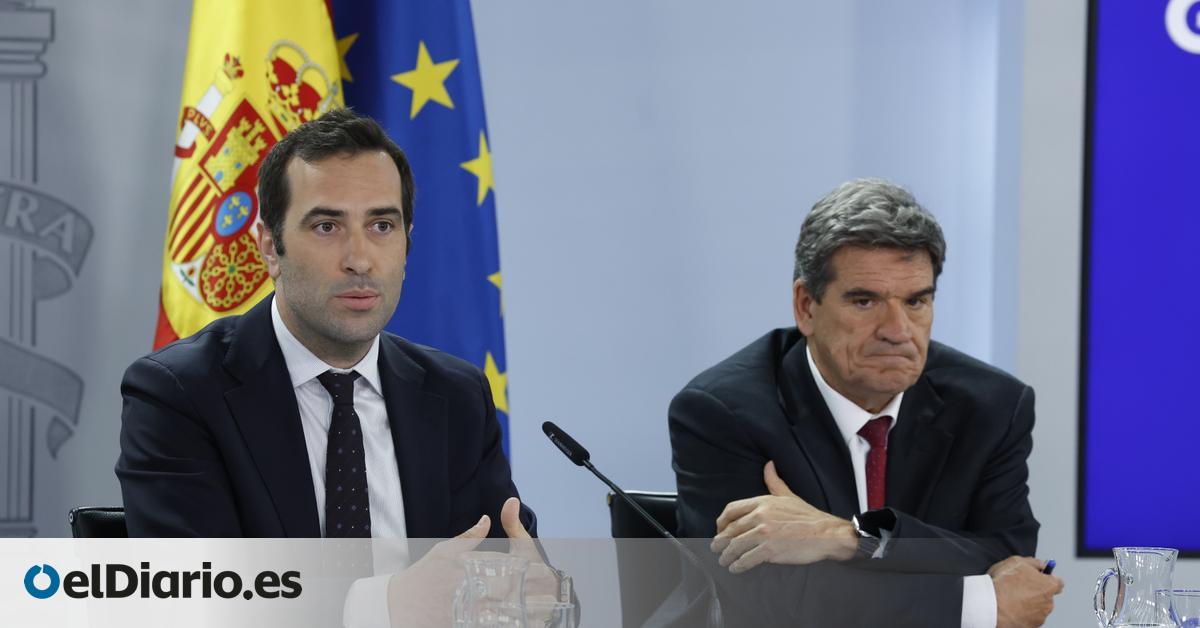
Positive evaluation with a but. The European Commission has given approval in its preliminary evaluation of the reforms linked to the fourth payment of recovery funds, but has objected to one of the milestones (related to investments for the digital transformation of SMEs), so has activated the ‘suspension of payment’. What does this imply? That the Government has one month to give explanations on how it intends to undertake the fulfillment of that commitment and, in the meantime, it remains in stand by the disbursement corresponding to that measure (158 million of the slightly more than 10,000 that correspond to the fourth tranche of the recovery plan). From there, the Government will have another six additional months to comply.
The measure that Spain has left halfway in the fourth tranche of the recovery plan has to do with the investment of 90 million euros within the framework of the ‘agents of change’ program for the digital transformation of 15,000 SMEs. What the Government argues is that there has not been enough demand to be able to use that money, that is, that not enough companies have submitted to the plan. On May 10, the Ministry for Digital Transformation led by José Luis Escrivá published the regulatory bases for the granting of this aid, reformulating the Agents of Change program into the ‘Kit Consulting’ program, “an intermediate objective of an investment whose final fulfillment It is scheduled for December 2025,” according to the Treasury in a statement.
“The initial program has been redesigned due to its low demand and a new call has been launched to meet the intermediate objective in the following months. The new program, called ‘Kit Consulting’, focuses on aid of up to 24,000 euros to hire an advisory service on the technologies most in demand by companies in recent years: AI, data or cybersecurity. Starting June 18, interested companies will be able to request this service,” the statement adds: “Since the launch of the invitation to join this program, around 900 applications have been received. In the next few hours the first resolution will be announced with some 500 ‘digital advisors’ registered for the ‘Kit Consulting’ program.”
The Government has tried by all means to avoid the stigma of receiving a partial payment by overcoming the obstacles of the most difficult reforms, such as pensions. In fact, the evaluation corresponding to the fourth payment has been delayed for several months due to the unemployment benefit reform that was choked in Congress, where it was rejected with the votes against PP, Vox and Podemos. From there, the vice president and Minister of Labor, Yolanda Díaz, began a negotiation with the social agents and the Government requested an extension from Brussels for the evaluation of the recovery plan.
Finally, the agreement between Labor and the unions was sealed on May 8 and the Council of Ministers approved the new unemployment benefit on May 21, within the two-month limit of the extension of the deadline granted by the European Commission. It is enough for Brussels that the reform has legal validity with a decree law, even though it has not gone through Parliament’s validation yet. In the event that this vote failed and Spain received the funds corresponding to that milestone, a more complex process would be opened by which it would have to return the corresponding funds.
In Brussels they do not give any importance to the work that remains for Spain to comply with the pending investment and the activation of the ‘suspension of payment’ process that will entail a first partial disbursement of 99% of the planned money until it is executed. completely the measure, which in any case entails a disbursement of around 1% of the total of the 10,000 million of the fourth payment, made up of 61 milestones. The calculation of how much each milestone entails depends on a complex evaluation system that Brussels approved in February 2023 and the Treasury considers that 158 million corresponds to the Agents of Change program.
There are already other countries, such as Portugal, Romania and Lithuania, that have encountered similar situations due to non-compliance with more than one measure in those cases.
When the 10,000 million arrive, Spain will have received 48,000 million of the recovery funds, 60% of what corresponds to it in non-refundable transfers. Recently the European Commission has proposed making the conditions of the recovery plans more flexible because only 35% of the planned money has been spent.
Source: www.eldiario.es

